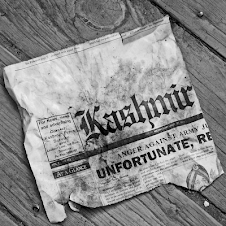On the 10th of every month, a couple of hundred people come together in Partap Park, in the heart of Srinagar city. They are a mix of people from almost every nook and corner of the valley, brought together by a common misery. Behind the beauty of Kashmir’s snow clad mountains and the sparkling lakes, lies immense pain and despair of families who are unaware of the whereabouts of their loved ones. Together, the family members, young and old wait for their sons and father, brothers and husbands to arrive. Collectively, they sit and protest silently against one of the worst atrocities that have taken place at the hand of Indian armed forces.
Kashmir, with as much beauty, has a scarred soul. As per the estimates of organisations working with these families, there are anywhere between eight thousand to ten thousand disappeared persons in the valley. They are the cases of enforced disappearances, where the so called security forces picked up these guys, irrespective of their connection to armed struggle. And they never returned, leaving their families in the state of despair and melancholy.
Among these thousands of families, there are around 2000 half widows in Kashmir. Half Widows are the women, who husbands have disappeared, and the whereabouts are not unknown, not even the information of them being alive or dead has been provided by the authorities. The plight of these families is indescribable. To imagine such pain is beyond imagination. All through these years of conflict in Kashmir, the suffering of these women has been infinite.
The life of these women is torn between running from pillar to post, to every Indian prison, meeting any official they can and to Partap Park on every 10th of the month to protest silently to get even a slightest clue about their loved ones. And this is not all: their children were also given the name half orphans, without being able to explain anything about their fathers is terrible. And these children caught up in the uncertainty of economical and social support being provided to them.
These women usually depend upon their families or on their in-laws to take care of their economical needs. And in many cases where the families think of them as an economical liability, they have to settle on their own. And to add to this, they in many cases are not given any property rights by their in laws and many a times are rendered homeless.
Even though very recently the Ulema have issued a fatwa saying that the women whose husbands have been missing can marry after waiting for four years, but not many of them actually do. Being caught between the social and economical support and their love and hope that one day their husbands might return, they usually choose otherwise.
The existence of unmarked graves, which were recently found, are fading the hope of life. More than 7000 of them were found and in one of the districts among more than 50 graves which were found, ninety percent were that of locals of a nearby village, who had disappeared in last two decades. This diminishes the hopes half widows and the half orphans, who have been waiting for long for their loved ones to return, so that they can restart their lives like any other normal family around the world and could get some respite from their sufferings.
These families of Kashmir have gone through extreme trauma. And there seems to be no end to their agony. Kashmir as a nation needs to rise to their pain and collectively share their sufferings.






